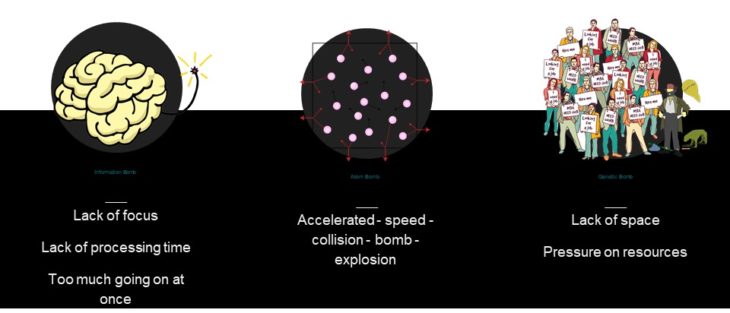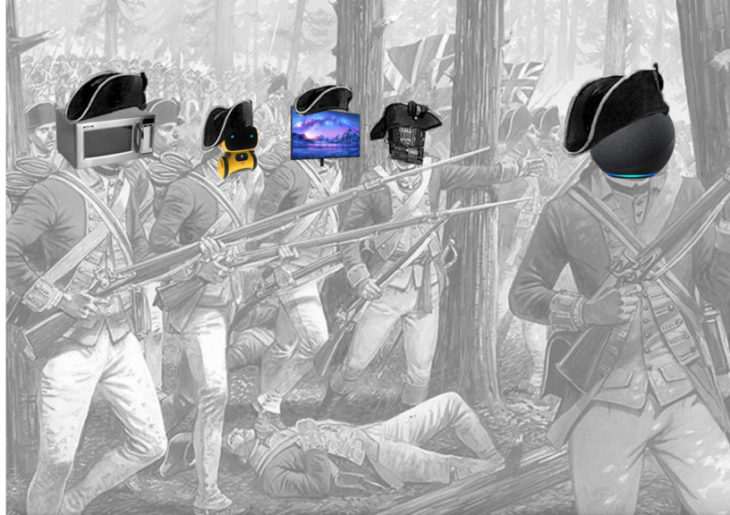Grey ecology by Paul Virilio
Scientific truth is an error living on borrowed time
-Paul Virilio
Paul Virilio, the author of Grey Ecology, was a renowned urbanist, political theorist and a critic of the art of technology. Born in the war stricken decade of 1930, the war was his university and provided him an insight to the stark changes that it brought about, especially in the technological discourse. It was during WWII that technological advancement in the communication sector, arsenal industries, and transport industries became synonymous to power and dominance. This book can be understood as Virilio’s attempt to explain his position and views regarding the progress made by science and its impact on society as well as the natural world.

Co-existence of the three ecologies- natural world, human world, and technological world- on a common geo-physical space, the Earth
Being an architect, Virilio’s thoughts are concerned to a good extent with proportions. “Proportions are the limit of being”, he puts forth this statement in regards to the space-time continuum and the delirium caused by technological advancement within this continuum. He coined the term ‘Dromosphere’ that he believes the world is currently functioning in. ‘Dromology’is the study of speed [introduced by technology] that changes the essential nature of the subject. For example, natural diamonds take decades to form while artificial diamonds can be mass produced within days, however their composition is completely different causing the change in its economic valuation. All sciences are linked to the geography of the world and are contained within the vastness and the measurement of the Earth. Within the dromosphere, however, these proportions are tweaked to an extent that objects lose their core meaning. To simplify this, he says to be a man is to measure between 1-2m, this defines the extent of his existence as ‘a man’ and not a giant or a dwarf.
The speed introduced by technologies like telephones, cameras, airplanes, etc create an over-emphasised value of the instant. It is the shrinkage of distance in real time due to accelerated reality, invalidating the factor of ‘space’. The impact of this is the lack of reaction time due to accelerated real time. He believes that this is the failure of success and not a failure due to error. This is at the core of many of the socio-economic as well as ecological problems being faced by the techno-culture generation today. He refers to Einstein’s quote of the three bombs- the atomic bomb, the information bomb and the demographic bomb in order to explain the impact of the dromosphere. Each of these bombs consumes its subject. Meaning, the atom bomb developed during the world war generates exponential motion within atoms and progresses to explode the surrounding ‘matter’. Similarly, the information bomb consumes the attention of the receiver putting ‘focus’ at a higher value. Technology and the speed of development is consuming our attention and disallowing us to focus on more eminent issues concerning socio-economic administration. Leading on these ideas, in his book Grey Ecology, he suggests an eminent need for a ‘university of disaster’.

The three bombs described by Einstein
Within the technosphere, the speed at which events occur are incomprehensive for the human mind. The shift from Anthropocene to technopocene has empowered speed making it a colonizer of social positivity. The acceleration of real time creates a constant pressure of the need to progress, eliminating the reflection time. Virilio speaks of the ‘integral accident’ that happens before you know it has happened. He believes that there is a need to decelerate and examine the ‘failure of success’ and to understand the nature of progress [technology].
The book also sets a premise for assessment of grey ecology. He formulates parallels of pollution of the geo-physical world with green ecology as the pollution of time and space with that of grey ecology.
He is often criticized for being a pessimist, however he strives to reassure that his ideas aim towards developing a better understanding of technology in order to regulate its impacts and not eliminating or ending the progress. His interests lie with apocalypse in terms of a revelation, opening up of a newer world and not the end of the world. The resources that technology consumes are limited on earth and over-consumption of these creates a disbalance in the political economy of energy politics, leading to a vicious cycle of consumerism that is the base of capitalism. Our understanding of technology is currently too limited for us to be able to put it in the frame of democracy and to regulate the power associated with it for a more harmonious world.

Colonizing technology
Students: Iletutu Awosika and Roshni Shah
Faculty: Jordi Vivaldi Piera
